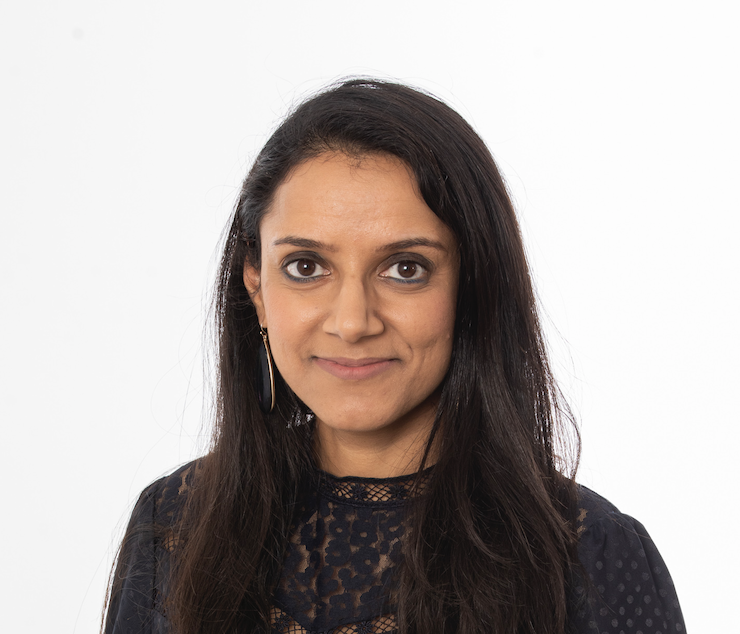Dr Shivani Misra is the 2023 recipient of the Precision Diabetes Medicine Award, bestowed jointly by the European Foundation for the Study of Diabetes (EFSD) and the Novo Nordisk Foundation. Her project aims to reveal the underlying reasons for the elevated risk of type 2 diabetes among South Asian populations, an underrepresented group in diabetes research.
For the past three years, the EFSD and the Novo Nordisk Foundation have joined forces to present the Precision Diabetes Medicine Award. The award recognizes three outstanding researchers: one winner and two runners-up. The winner is granted a research fund of DKK 2 million, while each runner-up receives DKK 500,000.
The award recognises researchers in both clinical and basic science whose work is expected to accelerate translational research and make it easier to bring new innovations into diabetes care.
Dr Shivani Misra is one such researcher. She is a Wellcome Trust Fellow and Honorary Consultant in metabolic medicine at Imperial College London and Imperial College NHS Trust, and has received numerous awards in recognition of her contributions to the field, including a Future Leaders Mentorship Award from the EFSD in 2017.
Through her research, Dr Misra primarily seeks to address gaps in our understanding of the epidemiology of type 2 diabetes within South Asian populations using precision medicine tools.
“It is a huge honour to receive this prestigious prize jointly from the Novo Nordisk Foundation and the EFSD that will help advance our understanding of type 2 diabetes risk in south Asian people,” said Dr Misra. “It is of vital importance that precision medicine approaches serve underrepresented populations in research so I am truly grateful to have our work recognised and I’m looking forward to working with collaborators to deliver our innovative project.”
An ‘outstanding contribution’ to precision diabetes medicine
People of South Asian descent face a significantly higher risk of developing type 2 diabetes compared to people of white European descent. They also tend to develop the disease a decade earlier and at a lower body weight. However, the specific factors contributing to this elevated risk remain inadequately explored in large prospective studies. Smaller-scale studies suggest that traditional cardiometabolic risk factors alone do not fully account for the increased risk. The pivotal question revolves around whether environmental factors, genetics, or a combination of both can explain the elevated risk.
Most research into type 2 diabetes has focused on white European populations, even though an estimated 100 million of the 540 million adults worldwide living with type 2 diabetes are in South Asia. Studying diverse ancestries is therefore vital for precision diabetes medicine research, but there has historically been a lack of suitable cohorts.
This is the unique strength of Dr Misra’s research project. She will use information from a population study of over 30,000 south Asian and white European people recruited from 2003 to 2008 in the UK. This extensive study aimed to establish risk factors for cardiometabolic diseases, including type 2 diabetes.
Recently, follow-up data has become available enabling study of the original participants over 20 years. As a result, Dr Misra’s project will be the most extensive contemporary prospective study to date, facilitating the assessment of the heightened risk of type 2 diabetes among South Asian people and the risk of progression from pre-diabetes to type 2 diabetes in South Asian people relative to white Europeans.
“The proposal’s strengths include its clinical relevance, as it addresses the impact of ethnicity on precision diabetes medicine, an area not sufficiently explored in existing studies,” says Professor Coen Stehouwer, Chairman of EFSD and part of the review committee for the award.
“The proposal holds promise for targeted interventions aimed at reducing health disparities within at-risk South Asian populations and stands as an outstanding contribution to the field of precision diabetes medicine.”
Runners-up
In addition to the primary Precision Diabetes Medicine Award presented to Dr Misra, two distinguished researchers have been selected as runners-up, each receiving grants of DKK 500,000 for their research endeavors.
Professor Cyrielle Caussy from Lyon University Hospital Center in France leads the research project Type 2 DIAbeTes with NAFLD: innOvative biomarkers of disease progressioN and clInical outComes, aiming to explore the potential of initial non-invasive biomarkers to identify which type 2 diabetes patients are at risk for progressing non-alcoholic fatty liver disease.
Professor Eran Elinav from the Weizmann Institute of Science in Israel is the second runner-up, with a project titled Decoding the Molecular Microbiome-driven Mechanisms of Rapid Post-bariatric Improvement in Diabetes. His research project aims to uncover the mechanisms behind the rapid improvement in glucose regulation seen in individuals with type 2 diabetes following bariatric surgery.
Final year for the award
The Precision Diabetes Medicine Award was established in 2021 and has been awarded annually since then, marking the 100th anniversary of the discovery of insulin in 1921, its first use in humans in 1922, and its first Nobel Prize recognition in 1923. This year’s award marks its final occurrence.
Martin Ridderstråle, Senior Vice President and head of Medical Science at the Novo Nordisk Foundation, emphasizes the significance of precision approaches in diabetes medicine: “How diabetes develops and presents can be very different from person to person, but treatments tend to be one-size-fits-all. Precision approaches – using an individual’s entire data set, ranging from routine information such as weight, age, sex or sociodemographic background to detailed data on for instance protein levels and genes to make decisions about treatments and interventions – can likely lead to markedly better outcomes for people living with diabetes, but there are currently too many gaps in our knowledge for these to be implemented widely.
“The field has advanced hugely in the last few years, with this award contributing by supporting vital research and raising awareness of the transformative potential of precision diabetes medicine. Although the award is ending, the Novo Nordisk Foundation remains committed to realising that potential through bringing scientists together around a common terminology and agenda, as well as the translational work that goes on at the research and clinical centers and other strategic initiatives.”
Professor Stehouwer echoes these sentiments: “Over the last three years, the EFSD and Novo Nordisk Foundation Precision Diabetes Medicine Award has supported a number of promising novel approaches in precision diabetes medicine. The work of the awardees has contributed to more effective and personalized management of diabetes, which can ultimately improve the overall quality of life for people with this chronic condition.”
The awardees are invited to deliver an award lecture at the Future of Precision Medicine Symposium 2023, scheduled for 9-10 November 2023 at the Novo Nordisk Foundation in Copenhagen. Additionally, they will be able to contribute an article from their perspective to Diabetologia.









